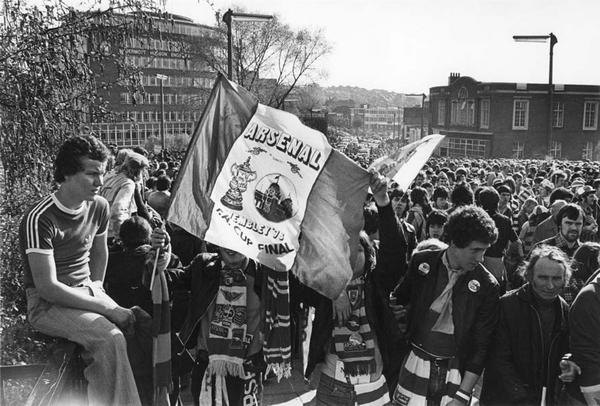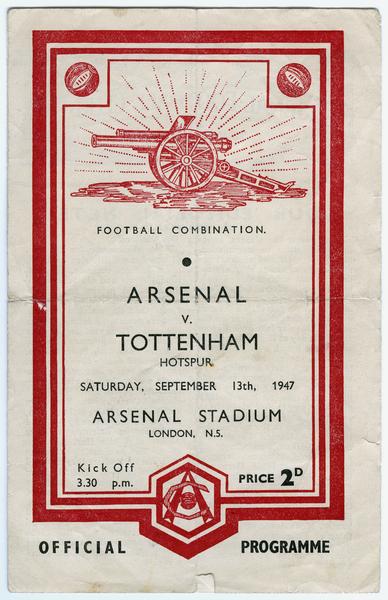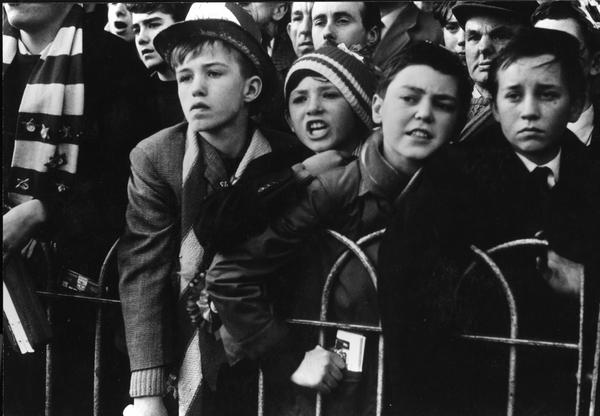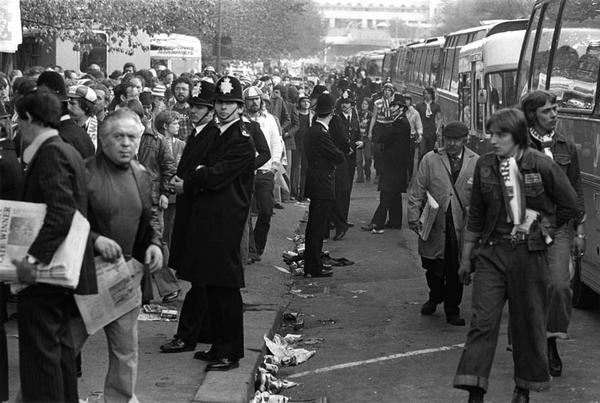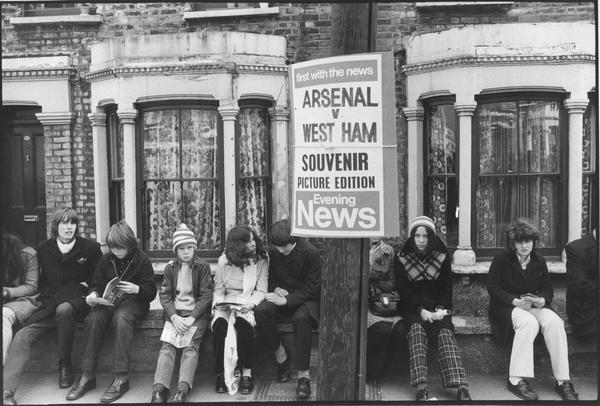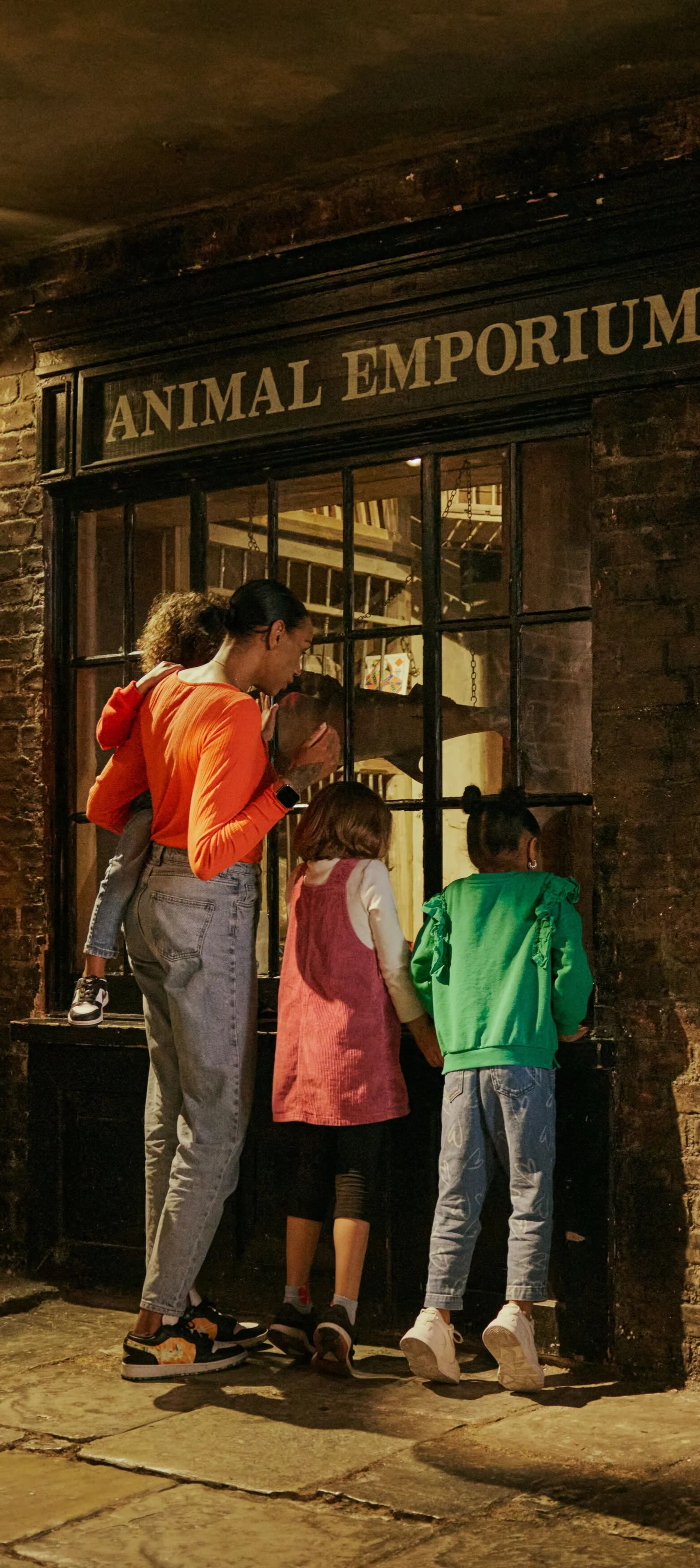Ian Wright: Arsenal hero, London legend
Ian Wright is an ex-professional footballer who played for Arsenal and England. A career as a much-loved pundit followed, making this stylish, warm-hearted Londoner a national treasure.
Highbury Stadium, Islington
1963
185 Arsenal goals and universal respect
Ian Wright’s prolific goal-scoring during the 1980s and 1990s made him a hero of Arsenal and Crystal Palace football clubs. But he was more than his goals. The striker was a proud Londoner achieving on the biggest stage. He had the accent, the manner, the style and the gold tooth – the fans knew he was one of their own.
His talent carried him into the England team, while his personality carried him to TV fame as a mainstay of the BBC’s flagship football programme, Match of the Day (MOTD). Wright’s laughter and enthusiasm for the game leapt out of the TV.
Wright’s cultural impact has gone further still. His diverse Arsenal team of the 1990s flew the flag for unity. And he continues to speak from lived experience and with authority about lingering racism in football.
He’s become a role model – and not only for his fashion sense. He’s opened up about a childhood marked by domestic violence, and dealing with the anger it left him with. Now he’s recognised by those with only a passing interest in football, and loved by fans of all teams.
Where is Ian Wright from?
Wright was born in Woolwich to Jamaican parents. He grew up on the Honor Oak Estate in Brockley, south east London. Built during the 1940s, the estate originally housed people whose homes had been destroyed in slum clearances. David Rocastle lived on the same estate, and the childhood friends later played for Arsenal together.
Wright went to school nearby, at what is now Turnham Academy, in Nunhead. He struggled to concentrate at first, and thanks his teacher, Mr Pigden, for steering him in the right direction. A widely shared video of Wright’s emotional reunion with the teacher many years later showed the depth of their relationship. Speaking on the BBC’s Desert Island Discs, Wright said: “He just gave me a sense of feeling like I had some use… He was the greatest man in the world.”
Wright has also spoken powerfully about the abuse he experienced at home. In the BBC documentary Ian Wright: Home Truths, he recalled how his stepdad beat his mother. How his mother told Wright she wished she’d terminated him. How he was forced to face the wall while his stepdad watched MOTD.
These experiences, Wright says, made him angry, on and off the pitch. It took therapy as an adult to finally address his trauma.
How did Wright become a footballer?
Wright’s road to the top took longer than most. He left school when he was 14 and got a job as a plasterer. He went to trials with many clubs – Millwall, Leyton Orient, Brighton and Charlton Athletic – but was never offered a contract.
In 1982, aged 19, Wright spent 32 days in Chelmsford Prison for not paying driving fines and driving without a licence.
After his release, he worked as a labourer, playing amateur football on the weekends. It was while playing for south London club Ten Em Bee that the striker was finally scouted for Crystal Palace. He signed his first professional contract with the team in 1985, when he was 21 years old.
Who did Ian Wright play for?
Wright played for Crystal Palace, Arsenal, West Ham, Nottingham Forest, Celtic and Burnley.
He spent six years at Crystal Palace, winning them promotion to the first division and scoring 117 goals.
This success prompted Arsenal to sign him in 1991, aged 28, for a record fee. Wright became their all-time top scorer (a record later broken by Thierry Henry), won the Premier League and FA Cup, and bagged a highlights reel packed with gloriously skillful goals.
How many times did Wright play for England?
Wright played for the national team 33 times and scored nine goals. Despite his excellent club form, Wright never played in a major international tournament. Badly timed injuries and England’s failure to qualify didn’t help. But in an interview with GQ, Wright said that he believes the media perception of him as “the angry Black man” affected his career.
Wright’s experiences of racism
Wright became a professional at a time when racist abuse from fans and racist attitudes within the game were widespread, despite increasing numbers of Black players in the top tier of English football. The 1991 Football Offences Act made racist chanting unlawful – but Black players still suffered.
Wright has spoken about changing room abuse and “Black against whites” games in training at Palace. He faced racist chanting from Barnsley fans during an Arsenal game in 1995.
Racist abuse hasn’t left football. Current players, and Wright himself, have continued to receive abuse, often through social media. Wright has used his own platform to draw attention to this issue, and to support players who’ve been on the receiving end.
“He was the first poster boy for the Premier League”
Clive Chijioke
Arsenal’s cultural impact
Racism and violence blighted English football in the 1980s. In the 1990s, football grounds could still be intimidating places, where people from many communities felt unwelcome. But Arsenal, Wright included, shrugged off that atmosphere, coming to stand for the ethnically diverse north London community they represented.
In an interview with the Guardian, writer Clive Chijioke Nwonka described how Wright “spoke in a vernacular you might hear at the barbershop or the local playground… very quickly, you saw not only Black fans but white fans wearing a shirt with ‘Ian Wright’ on the back. There was something transcendent about that. He was the first poster boy for the Premier League.”
Arsenal has been home to generations of gifted Black players – David Rocastle, Nwankwo Kanu, Patrick Vieira, Thierry Henry, Bukayo Saka – and the diversity of its teams created a feeling of acceptance and cultural integration.
It’s reflected in Arsenal’s diverse fanbase. Today, the club wears this as a badge of pride, recently releasing specially designed shirts to celebrate its supporters of African and Jamaican heritage.
When did Ian Wright retire?
Wright retired in 2000 while playing for Burnley. But his Premier League legacy continued – his sons Shaun and Bradley Wright-Phillips both later played in the league.
When did Wright start on TV?
Wright first appeared on MOTD in 1997. It was an early moment in Wright’s budding career beyond the pitch. In 1998 he was given his own ITV show, Friday Night’s All Wright. In 1993, he released a music single, Do the Right Thing.
In 2002, after his retirement from football, Wright began to appear regularly as a pundit on MOTD. His analysis, delivered with relatable enthusiasm, won him many fans. He became a fixture of the show, and a close friend of fellow presenters Gary Lineker and Alan Shearer. He also stood out for his empathy with players in tough times, something which has seen him become a mentor to players like Marcus Rashford and Raheem Sterling.
Wright retired from the show in 2024. But he’s hardly moved out of the spotlight. As well as flexing his style in campaigns for fashion and sports brands, Wright has gone on to host podcasts and acted in Daniel Kaaluya’s film The Kitchen.
He’s also been a major advocate of women’s football, campaigning to attract attention and investment.





